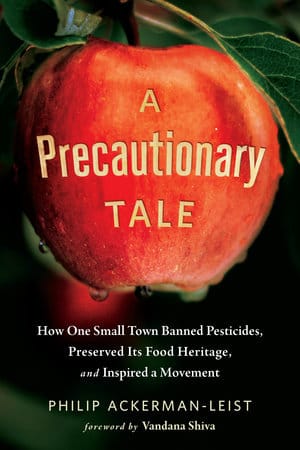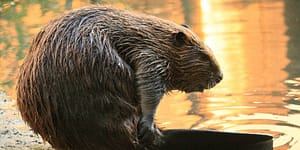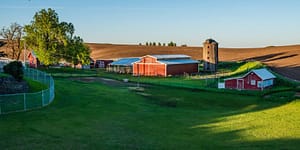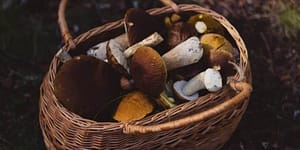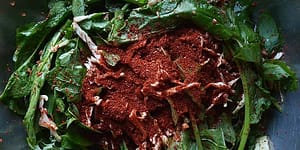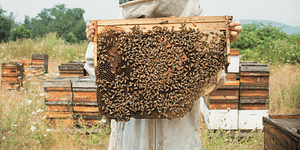A Grassroots Revolution for Pesticide-Free Communities
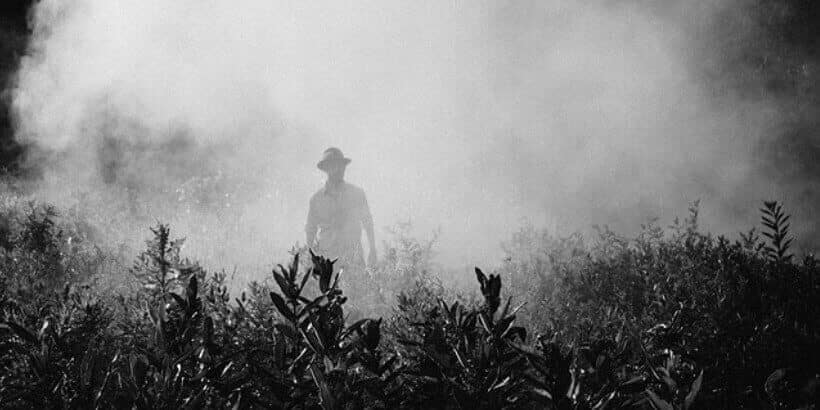
As the ‘poison cartel’ creeps relentlessly across food systems, there is overwhelming evidence that something must be done to stop them. The small town of Mals, Italy took a stand and started a revolution to stop the corruption and pave the way for a pesticide-free future.
The following excerpt is the foreword by Dr. Vandana Shiva written for A Precautionary Tale by Philip Ackerman-Leist. It has been adapted for the web.
Mals, a small village in South Tirol, has shown once again the truth in the famous words of Margaret Mead: “Never doubt that a small group of thoughtful, committed citizens can change the world; indeed, it’s the only thing that ever has.”
For more than a century, a poison cartel has experimented with and developed chemicals to kill people, first in Hitler’s concentration camps and the war. These chemicals were later sold as inputs for industrial agriculture. The poison cartel I refer to here is the handful of global corporations that push chemicals and genetically modified organisms (GMOs) in farming—Bayer/Monsanto, Dow/Dupont, Syngenta/ChemChina. Killing is their expertise.
In India, a country of small farmers, the assault of the poison cartel has driven millions off the land and pushed 300,000 farmers to suicide due to debt for costly seeds and chemicals. The genetically modified (GM) seeds have failed to control pests and weeds. Instead, they are creating super pests and super weeds, trapping farmers deeper in debt.

Pesticide pollution knows no boundaries, and the pesticide sprays contaminate entire ecosystems, our food, our water. These corporations take away our right to be free from harm.
They do not poison just people, our farms, and our food; they poison regulatory systems and science. Corruption of science, of regulation, of centralized governments is their expertise.
The agrochemical industry and its new avatar, the biotechnology industry, do not merely distort and manipulate knowledge, science, and public policy. They also manipulate the law and the justice system.
That is why the movement for freedom from poisons in our food and agriculture is the most important freedom movement in our times. It is a movement for the rights of the Earth, the rights of all species, of all peoples to be free from harm, to be healthy. It is a movement to protect the diversity of species, of cultures, of economies, of knowledge, of decision making from the local to the global.
It is the movement for justice, for the right to life and livelihood. It is the right to know about the potential harm from poisons and poison–producing plants—GMOs. It is freedom from manipulated alternative facts and post-truths, which hide truth and try to bury it, as we are witnessing in the case of glyphosate and GMOs .
The World Health Organization (WHO) categorized Monsanto’s glyphosate (Roundup) as a probable carcinogen. Monsanto attacked WHO and has deployed its lobbyists to block its ban.
While courts can investigate crimes of the poison cartel, and this is important for justice, people have the power to change the way we grow our food. That is why hundreds of People’s Assemblies, being organized everywhere, will make commitments to create a healthy future of food and of the planet. From the People’s Assemblies, we are launching a boycott campaign to liberate our seeds and soils, our communities and societies, our planet and ourselves from poisons and the rule of the poison cartel.
As the poison cartel undemocratically tries to force its poisons and GMOs across the world, more and more communities and countries are making the democratic choice to become poison-free and GMO-free.
Philip’s book, based on real stories about the courage of real people, provides touching human details of how the movement evolved in Mals and reminds us that this is what freedom looks like. This is what Earth Democracy looks like. It is like a seed. It begins small. It grows from the ground up. It spreads its roots deep, its branches wide. In the soil the mycorrhizal fungi and billions of microorganisms spread life and nourishment. From the flowers, pollinators spread life and nourishment.
Mals stands out as a community that decided to create toxic-free food and agriculture systems through real democracy, democracy based on the active participation of citizens.
And let us join hands, minds, and hearts to create a healthy, happy world, free of poisons and the poison cartel. Seed by seed, farm by farm, community by community, let us make this beautiful Earth a garden of diversity and abundance, of well-being and freedom for all people and all beings.
Every place is a Mals waiting to spread its wings of freedom.
More on Mals:
A new mini-documentary series from Friends of the Earth Europe demonstrates the real-life value of regulation, laws and standards in protecting people’s everyday lives and our planet. The pesticide-free town: sowing the seeds of tomorrow’, follows the incredible story of Mals, the first town in the world to ban the use of pesticides.
Recent Articles
Beavers are ecological and hydrological Swiss Army knives. Capable of tackling just about any landscape-scale problem you might confront.
Read MoreWhen you’re walking around the grocery store looking at the vegetables, it’s probably hard to imagine that a century ago there was twice the amount of options.
Read MoreFor people who enjoy foraging for food in the wild, there are plenty of mushrooms to choose from — “ten thousand mushroom species to be considered on the North American continent alone”. But foraging for mushrooms should never be thought of as a game of chance. You need to know all the clues when it comes to identifying…
Read MoreNeed a new twist on kimchi? Look no further than this wild green kimchi! Experiment with what you have, anything from the mustard family will work extremely well.
Read MoreFor all the beekeepers and future beekeepers out there, this one is for you! Your journey to successful beekeeping begins with constructing a suitable haven for honeybees, otherwise known as the bee hive. The following is an excerpt from Raising Resilient Bees by Eric and Joy McEwen. It has been adapted for the web. Bees…
Read More
